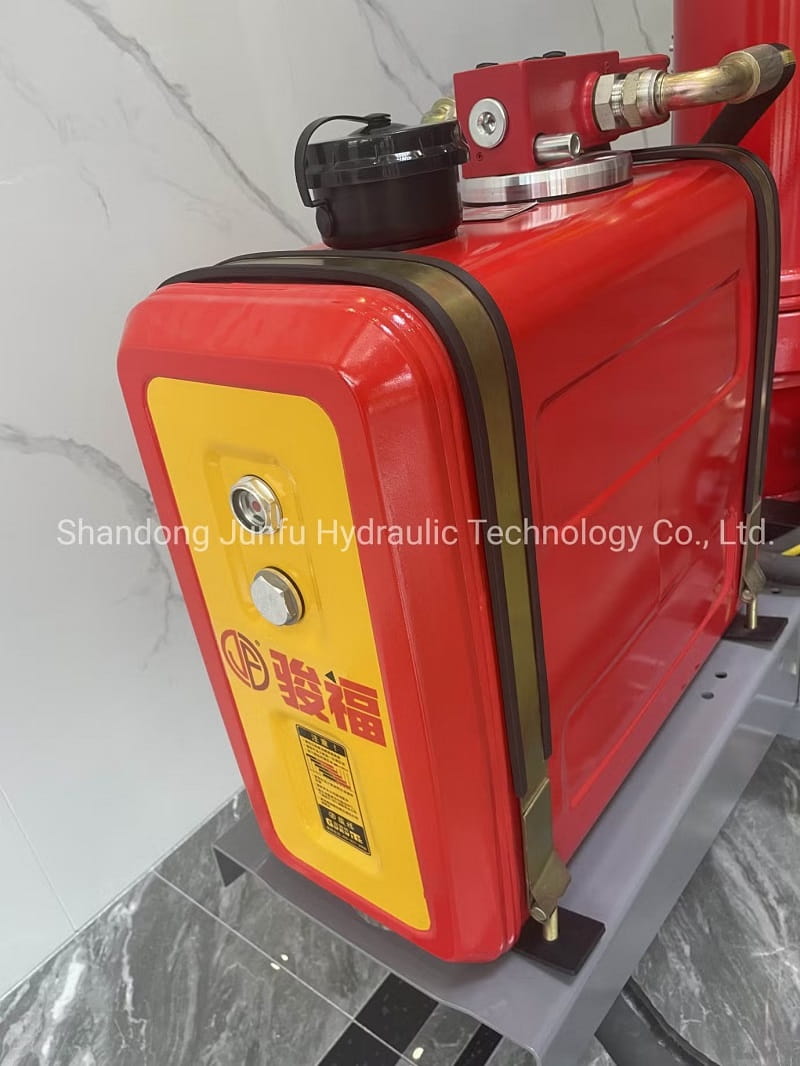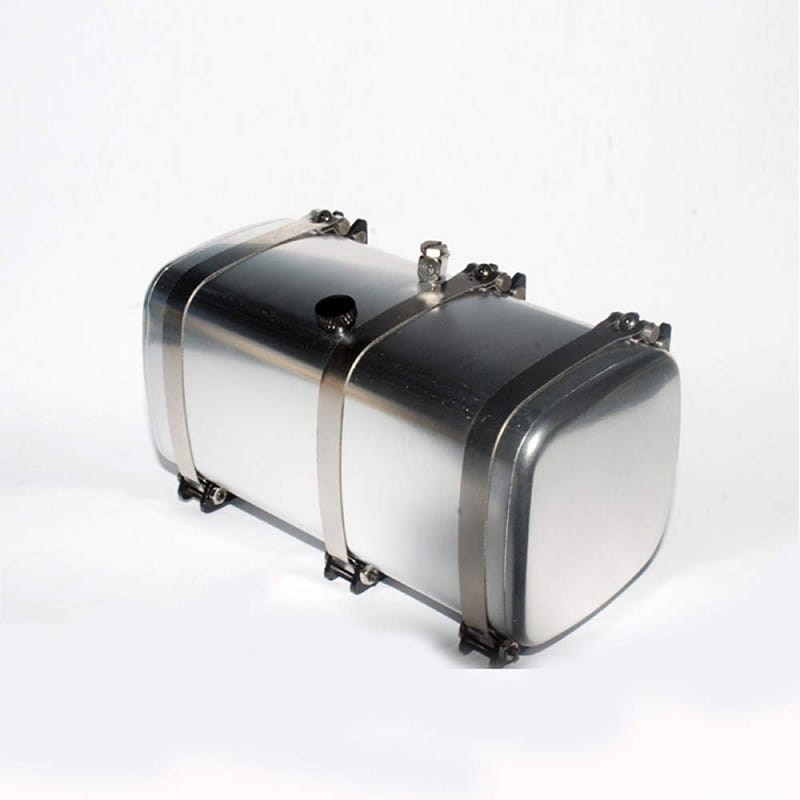Understanding the Dump Truck Hydraulic Tank: Functions, Components, and Maintenance catdumptruck.com | A dump truck is an essential vehicle in industries such as construction, mining, and transportation.
One of its most critical components is the hydraulic tank, which stores and supplies hydraulic fluid to the system. The hydraulic tank plays a crucial role in ensuring the proper operation of the hydraulic system by maintaining fluid quality, temperature, and pressure.
Understanding the function, components, and maintenance of a dump truck hydraulic tank is essential for ensuring optimal performance and longevity.
Read More: Understanding the Dump Truck Hydraulic Cylinder: Functions, Components, and Maintenance
What is a Dump Truck Hydraulic Tank?

A dump truck hydraulic tank, also known as a hydraulic reservoir, is a container that holds and manages hydraulic fluid.
It provides a steady supply of hydraulic oil to the pump and other components, ensuring smooth operation of the hydraulic system.
The tank also serves to cool, filter, and remove air bubbles from the hydraulic fluid, preventing system failures and inefficiencies.
Functions
The hydraulic tank performs several key functions, including:
Fluid Storage
The tank holds hydraulic fluid necessary for the system to function.
It ensures that there is an adequate supply of oil at all times.
Cooling the Hydraulic Fluid
Heat is generated during hydraulic operations, and the tank helps dissipate excess heat.
Some tanks have built-in cooling fins or cooling systems to regulate temperature.
Removing Air and Contaminants
The tank helps eliminate trapped air from the fluid, preventing air pockets that could affect performance.
It also works in conjunction with filters to remove contaminants and debris.
Providing Pressure Stabilization
The reservoir ensures a stable and consistent pressure level within the hydraulic system, preventing surges or drops.
Key Components of a Dump Truck Hydraulic Tank
A hydraulic tank consists of several important components that work together to maintain efficient fluid circulation. These include:
Reservoir Body
The main structure that stores hydraulic fluid.
Usually made of steel or aluminum to withstand pressure and environmental conditions.
Breather Cap
Allows air exchange to prevent vacuum buildup inside the tank.
Equipped with a filter to prevent contaminants from entering.
Return Line Filter
Cleans hydraulic fluid before it re-enters the tank to remove dirt and debris.
Temperature Sensor and Heat Exchanger
Some tanks include sensors to monitor fluid temperature.
Heat exchangers may be used to help cool the hydraulic oil.
Sight Gauge and Dipstick
Enables operators to check fluid levels and ensure the right amount of hydraulic oil is present.
Drain Plug
Allows for easy removal of old or contaminated hydraulic fluid during maintenance.
Each of these components plays a crucial role in maintaining hydraulic system efficiency and reliability.
How a Dump Truck Hydraulic Tank Works
The hydraulic tank operates as part of the overall hydraulic system in the following manner:
Fluid Storage and Circulation
The tank holds hydraulic oil, which is drawn by the hydraulic pump.
Fluid Flow to the Hydraulic Pump
The pump pulls oil from the tank and distributes it to the hydraulic components.
Return of Heated Fluid
After completing its function, the used hydraulic fluid returns to the tank via return lines.
Cooling and Filtration
As the oil returns, it passes through filters and cooling elements to remove contaminants and dissipate heat.
Repeat Cycle
The cleaned and cooled oil is then available for reuse in the hydraulic system.
This continuous cycle ensures smooth and efficient operation of the dump truck’s hydraulic functions.
Common Issues and Troubleshooting
Even with proper maintenance, hydraulic tanks can develop issues over time. Some common problems include:
Low Hydraulic Fluid Levels
Possible causes: Leaks, evaporation, or inadequate refilling.
Solution: Regularly check and refill the hydraulic fluid as needed.
Contaminated Hydraulic Fluid
Possible causes: Dirt, debris, or moisture entering the system.
Solution: Change hydraulic filters regularly and use high-quality hydraulic oil.
Overheating Hydraulic Fluid
Possible causes: Inefficient cooling, excessive workload, or clogged filters.
Solution: Inspect the cooling system, clean or replace filters, and allow the system to cool down.
Air Bubbles in Hydraulic Fluid
Possible causes: Improper sealing, loose connections, or excessive aeration.
Solution: Check for leaks, tighten fittings, and ensure the breather cap is functioning properly.
By identifying and addressing these issues early, dump truck operators can prevent costly repairs and system failures.
Maintenance Tips for a Dump Truck Hydraulic Tank
Proper maintenance of the hydraulic tank is essential to ensure the longevity and efficiency of the dump truck’s hydraulic system. Here are some maintenance tips:
Regular Fluid Checks
Inspect fluid levels and top up as needed to avoid running the system dry.
Use Clean and High-Quality Hydraulic Oil
Contaminated or low-quality oil can lead to premature wear and reduced efficiency.
Replace Filters Periodically
Clogged filters can restrict fluid flow and cause overheating.
Inspect for Leaks
Check hoses, fittings, and seals regularly for any signs of fluid leakage.
Monitor Temperature and Cooling Efficiency
Ensure that the hydraulic oil is not overheating, and clean cooling fins if necessary.
Drain and Clean the Tank Periodically
Remove sludge and contaminants by draining and cleaning the tank at regular intervals.
By following these maintenance guidelines, dump truck operators can reduce downtime and extend the life of the hydraulic tank.
Conclusion
The hydraulic tank is a vital component of a dump truck’s hydraulic system, ensuring efficient fluid storage, cooling, and circulation.
Understanding its functions, components, and maintenance requirements is essential for keeping the hydraulic system operating smoothly. Regular inspections and proper care can prevent issues, enhance performance, and extend the lifespan of the dump truck’s hydraulic system.
By investing in high-quality hydraulic tanks and maintaining them properly, dump truck operators can maximize efficiency and reduce operational costs.
- Hooklift Trucks for Sale in the UK: A Comprehensive Guide - March 31, 2025
- Hooklift Truck Auction: A Complete Guide - March 31, 2025
- Hooklift Truck for Sale in BC: A Comprehensive Guide - March 30, 2025




